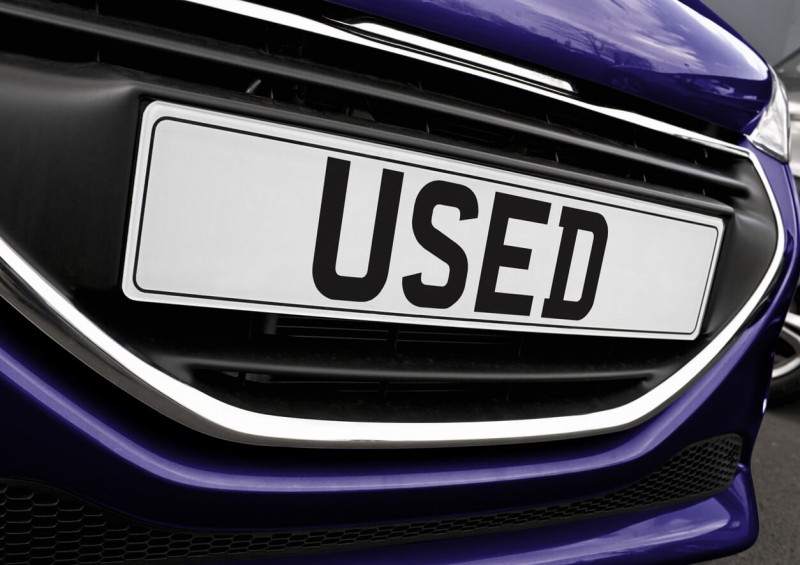4 Used Car Pitfalls – Why You Should Lease a New Car Instead

Getting a car should be an exciting time, and just because the car is used doesn’t mean you shouldn’t have the same buzz that comes from getting a brand-new car – after all, it might be old to them, but it’s new to you!
There are many ways of finding somewhere to get a second-hand car from and finding a bargain – from classic established sites like AutoTrader through to finding something private on Facebook marketplace - but if you are not buying from a trusted and well-reviewed dealership, then you could be facing a few problems, and even if you do buy from somewhere reputable, it might not be plain-sailing.
At Complete Leasing, we strongly believe that the advantages of leasing a car heavily outweigh the pros and cons of buying a used car. There’s a lot of false economy in used cars with hidden repair costs and dishonest sellers high on the list – but rather than talk about it here, let’s take a deeper look.
Is it worth buying a used car or is personal leasing the way to go?
Pitfall #1 – being conned
It’s not a nice thing to say, but there are plenty of people out there who will do what they can to hide the truth of the state of the vehicle so that you believe the deal is far better than it is.
Once money has changed hands and you’ve driven away, there is actually very little you can do in order to sort the situation if you are conned – they are a few steps ahead of you and have probably done what they need to, to get away clean. Unless you have the money to potentially lose in legal proceedings, the chances are a dodgy seller is going to get away with everything.
For this reason, it’s really important that when buying a used car, you take the right amount of care and only finalise a deal when you have absolutely no doubts.
Here are a few things to look for in the seller to avoid being conned:
- People dealing in cash only
- A rush to sell
- No previous seller feedback
- Meeting in an unusual place or at night
- A lack of service history or other documentation
- The deal is really too good to be true
Regarding the vehicle, it is a good idea to have a mechanic come to see the car with you if you don’t know what you are doing. Breakdown clubs such as the AA or RAC offer a service to do this if you don’t know anyone personally.
Some things that are done to hide the poor state of repair:
- Odometer tampering to alter mileage
- Wires disconnected or tape used to hide dashboard warning lights
- Tape or cable ties used in place of proper fittings
- The seller focuses on an obvious issue to draw away from other parts of the vehicle – typically explaining how the issue in-focus is the reason for the low price
- Refusal to allow a test drive, or allowing a short test drive only – you should drive for five to ten miles to really understand the vehicle before buying
In truth, the vast majority of used car sellers are not trying to pull a fast one, but one poor experience is more than you ever want.
Leasing comparison #1 – trusted dealerships
When you lease a car, it typically comes from a main dealership through a trusted finance company. All your questions will be welcomed, and everything explained in full – including any queries you have regarding the company and its history. Plus, the car is going to be completely brand-new!
Pitfall #2 – the immediate cost of repairs
Very rarely is a private individual selling you a car that is in a full state of repair. This is because they will have made the decision to sell and replace their car when it becomes no longer viable for them to continue using it. That doesn’t mean they are trying to con you or that the vehicle doesn’t have value, but they are likely to know that an ongoing issue is about to rear its head and the cost of repairing it is no longer worthwhile for their continued use of the car.
An example can be the timing belt – these must be replaced regularly and the cost of doing so is a few hundred pounds or more. If the seller has it in their head that it’s soon due a timing belt replacement but doesn’t want to make the investment, they may consider selling off the car instead. The same is true with clutch issues, known wear and tear to wheel joints or steering, or even the simple fact that the MOT is due, and they just don’t want to know!
Most used cars that aren’t bought from a dealer will have an increased number of repairs needed in the first two or three months of ownership – and this can more than double the real cost of buying the vehicle. It is not unusual with a car costing £2,000 to find yourself spending a similar amount in the first 90 days keeping it on the road.
Having said this, it’s not always a poor investment – once you have dealt with these larger issues, you are likely to get another few years from the car before you make the same decision the previous owner did and sell it on rather than go through another run of expensive repairs.
But pretending to yourself that these initial used-car repairs don’t happen is poor budgeting!
Also, just because you buy your second-hand car from a dealer, doesn’t make it immune to the same issues in the first few months, but it’s more likely that known issues are dealt with – it’s the unknown ones you have to worry about!
Leasing comparison #1 – warranty and maintenance packages
When you lease a brand-new car, it comes with a manufacturer’s warranty that is going to last the entire term of your lease. In real terms, this means that if anything goes wrong, they’ll get it fixed right away at no cost to you and even make sure you have a courtesy car to cover you while it’s in for repair.
Opt for an additional maintenance package at a little extra cost and even the servicing is dealt with! That’s a relaxed and worry-free time for you – and not just for the first three months, but for the entire time the car is with you.
Pitfall #3 – depreciation and losing your money
One belief of those who buy cars is that they are going to be able to sell their car on and make a lot of the costs back. Sadly, for the most part, this isn’t true.
Of course, cars are sold – after all, we’re talking about used cars here! And, of course, money is made, but the hideous monster of depreciation makes buying a used car financially upsetting.
In the UK, depreciation for the first few years of a car’s life is approximately 20% per year. That’s a loss of £4,000 every year on a £20,000 car. That percentage drops as the car ages, but it never stops, and depreciation is a problem for every car – new and used.
With the cost of repairs and maintenance, plus the replacement of tyres and other consumables, the cost of car ownership isn’t easy to ignore.
The mathematics is actually quite surprising. Once you factor in all the different issues, from spreading the cost of purchasing a used car, and then keeping it on the road assuming an average level of repairs, taking resale value into account etc. the cost of keeping a car on the road in the UK today tops an average of £350 per month.
Leasing comparison #3 – leasing a brand-new car at no greater monthly cost
Wouldn’t you rather be driving a brand-new vehicle with no issues? With a huge range of cars available, finding a lease deal that comes in at under than £350 baseline is effortless. There’s no worry about suddenly having to find hundreds of pounds for unexpected repairs and you don’t need to track your car’s resale value or worry about finding a buyer once it has come to the end of its useful life.
The difference in real-world cost when leasing is minimal, and the sheer personal joy and safety you get from having a brand-new car with all the latest technology should make the decision a no-brainer!
Pitfall #4 – you just don’t know
A combination of all the above, pitfall number four is simply the unknown. When you buy a used car, you put yourself in the position of being responsible for something that is worth a large amount of money, that could very well cost you more money, or could breakdown at an incredibly inconvenient time, or could simply permanently stop working one day and there’s absolutely nothing you can do about it.
Of course, it could also be a fantastic car that purrs from day one and never has an issue – but you know what? You just don’t know.
Leasing comparison #4 – stress-free support
One of the many benefits of leasing is the support you will get – whether it’s from us at Complete Leasing when finding you the perfect vehicle, or later from the dealership with their on-going help and advice. If anything goes wrong, there will be someone who will bring their professionality to the fore, resolving the situation as quickly as possible.
Throw away those used car disadvantages and try personal leasing today!
Used car or lease new – what is the best way to get a new car?
Our conclusion is pretty damning for the people trying to shift their old cars. Every day, people come to us at Complete Leasing and ask us ‘should I buy or lease?’ – and every day we make another person happy that they came to us as they find themselves proudly driving away with a brand-new car.
If you are worried that long-term leasing is too much of a financial commitment, dip your toes into the water with short-term leasing. With deals as short as a few months, you can try the leasing lifestyle without putting all your eggs in one basket. Believe us, we know you won’t be going back to scour the second-hand car market when you’re done!
As one of the alternatives to buying a new car, leasing provides a way for hundreds of thousands of UK drivers to get access to the top-quality models and luxury options without needing a huge budget or debilitating loan commitment.
Is it good to buy used cars when you can lease? Try a short-term leasing contract as your next car and then you tell us!
Give us a call at Complete Leasing today or fill out our 60-second contact form to get on the right road.




































